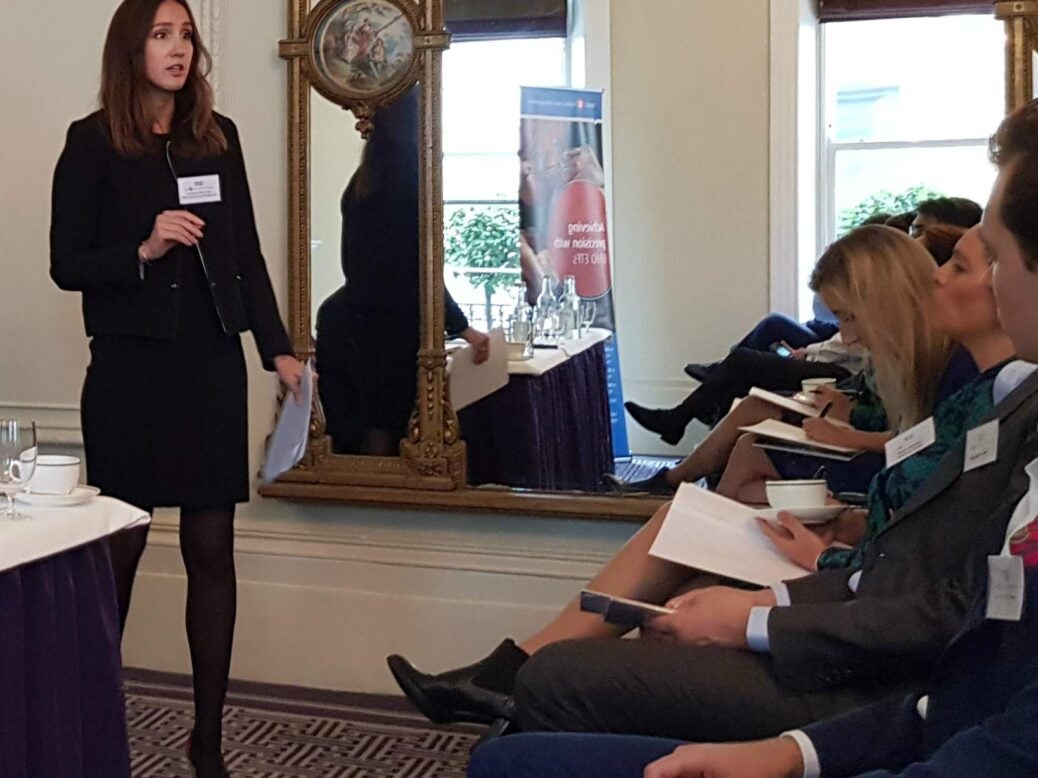
Central banks could soon move the ‘game board’ towards low currencies from rising interest rates as geopolitical concerns mount, a leading investment strategist tells Spear’s
At the latest edition of Spear’s industry-leading breakfast briefing focusing on multi-asset investing and ETFs (full report to follow), keynote speaker Morgane Delledonne, ETF Investment Strategist at BMO and former economic analyst at the French treasury, cautioned that the slew of global economic uncertainties had not yet been priced into the market.
To address this, Delledonne says, ‘communication between central banks will remain key’ – and as Fed chairman Jerome Powell and Mark Carney converse – ‘the game board will switch from interest rates to currency markets’.
Delledonne kicked off the discussions by asking whether markets had embraced policy-fuelled economic growth but ignored some of the pending geopolitical uncertainties.
Although central banks have helped investors find confidence in the global economy’s recovery – while also reducing the fears of rising inflation – the ability that governments and central banks have to stimulate or stabalise the economy may have, she adds, ‘encouraged strategies that have suppressed financial volatility’.
In short, the market’s warning signs that things are either well, not so well or failing, has been suppressed by ‘policy-fuelled economic growth’ that has helped spur US markets ‘to double in size’ from levels pre-crisis.

Delledonne suggests that most financial and economic models don’t include political risks and therefore the current prices of assets globally may not reflect the level of these risks.
To adapt, she told invited guests: ‘I believe that over the next few years, communication between central banks will remain key. And the game board will switch from interest rates to currency markets – everybody wants a low currency because it’s good for the economy.
‘But it’s impossible for all the developed markets to have low currencies. There may well be a dispute between central banks.’
Concluding that this is not something that investors should be worried about, the BMO strategist says wealth managers should ‘take it into account for investing with a broad overview of our portfolios.’
In later comments Delledonne told guests at Brown’s Hotel in Mayfair that sterling prices have partly factored in a pessimistic scenario of a ‘hard’ or ‘no deal’ Brexit, so that ‘any deal’ would see a positive outcome for the pound.
Full report – Multi-Asset Investing: How ETFs can help build compelling portfolios to follow…
By the same author…
HNWs and crypto investment: closer than you think?
The plummeting pound: why diversification matters for HNWs
Bank of England, boyfriends and Brexit: rate rise reaction






